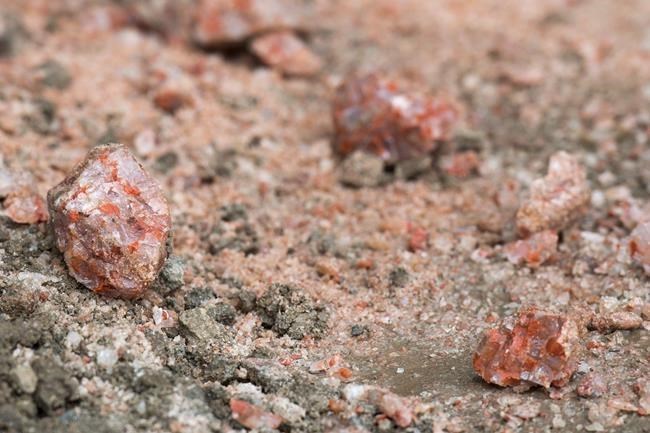Australian mining giant BHP is going ahead with a plan to spend $6.4 billion to build the second stage of its Jansen potash mine east of Saskatoon — a move the company says represents a doubling down on its commitment to sa���ʴ�ý as well as its confidence in the future of the critical mineral.
The company announced Tuesday it has approved the next step in its ongoing development of what BHP says will be the largest potash mine in the world, once complete.
The first stage, which is already under construction, is about a third of the way finished, with an anticipated start date of 2026. The second stage is expected to involve six years of construction, with first production in 2029 followed by a three-year ramp-up period.
Global prices for potash, which is used to make fertilizer, have been volatile in the last couple of years. They spiked to dramatic highs in the wake of Russia's invasion of Ukraine last year but have since fallen back down to 2021 levels.
However, Ragnar Udd, BHP's president for the Americas, said the company's decision to invest isn't based on commodity prices, but on what it sees as the long-term demand for potash.
"We believe that potash is going to be a key ingredient for the planet as the population grows with less arable land," Udd said in an interview.
"And the fact that we've already got a shaft in place (with stage one) that's expandable, the fact that we've actually got port capacity, we have permits in place, we have a great team that is doing excellent work in Saskatchewan — we believe that this is actually the time to push into this investment."
Prior to Tuesday's announcement, BHP had already approved $12.4 billion in investments for the Jansen project, making it the largest mining investment in Saskatchewan's history and the first underground mine to be built in the province in 30 years.
Stage two of the Jansen project is expected to double production capacity at the site to approximately 8.5 million tonnes per annum.
Longer term, the mine will have the potential for two additional expansions to reach an ultimate production capacity of 16 to 17 million tonnes per year.
According to federal government statistics, sa���ʴ�ý produced an estimated 22.5 million tonnes of potash in 2021.
Saskatchewan is the largest potash producer in the world and the sole producer insa���ʴ�ý, typically accounting for about 30 per cent of global potash production.
But Udd said there is significant potential to grow that production.
"It's such a significant resource — it's a massive deposit," he said.
"When we look at the world's great potash basins, there really are three — one is in Saskatchewan, and the other two are in the former Soviet Union, in Belarus and Russia. We believe that the one in Saskatchewan is actually the highest-quality deposit globally."
The second stage of the project is expected to create more than 2,000 construction jobs and more than 300 full-time Saskatchewan-based jobs once production begins.
Udd said BHP aims to employ the latest technologies to make Jansen the lowest-emitting potash mine in Saskatchewan. The company has also set targets around the proportion of Indigenous and women workers that will be employed at the site.
The potash produced at Jansen will be exported to global markets, in particular the U.S., Brazil, India and southeast Asia.
BHP will be entering a Saskatchewan potash landscape that is currently dominated by Nutrien Inc., a Canadian company that is the world's largest fertilizer maker.
Nutrien, which was created through the merger of Agrium Inc. and Potash Corp. of Saskatchewan in 2018, operates six potash mines in Saskatchewan.
In 2010, BHP launched a hostile takeover bid for Potash Corp., but the proposed merger was ultimately blocked by the federal government.
This report by The Canadian Press was first published Oct. 31, 2023.
Amanda Stephenson, The Canadian Press



